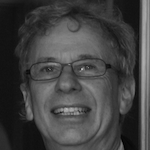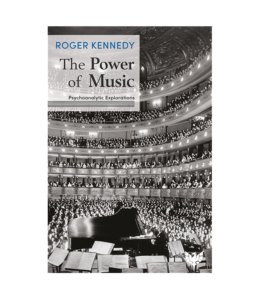
Dr Roger Kennedy is a consultant child and adolescent psychiatrist and an adult psychoanalyst. He was an NHS consultant in charge of the Family Unit at the Cassel Hospital for nearly 30 years. He was chair of the Child and Family Practice in Bloomsbury and is still a director there. His work includes being a training analyst and seeing adults for analysis and therapy, as well as children, families, and parents at his clinic. He is a past president of the British Psychoanalytical Society, and is well known as an expert witness in the family courts. He has authored thirteen previous books on psychoanalysis, interdisciplinary studies, and child, family, and court work, as well as many papers.
Here he introduces us to his latest book, The Power of Music: Psychoanalytic Explorations 
The book explores, with the help of a psychoanalytic perspective, some of the ways one can understand how music affects us deeply at various levels – emotionally, intellectually and bodily – to give us considerable pleasure. We are aroused by the effect of music but music can also convey to us complex meanings and focused and powerful emotional states. It seems to involve simultaneously the deepest and earliest layers of the self as well as the most sophisticated. It can create a sense of wholeness or even fragment us by its power. It can rouse us into battle or provide laments for the fallen dead. It can excite us with rhythms and harmonies, or soothe our troubled souls with elegies. It can bring us into intimate connection with others or allow us to retreat into a private world of the imagination. Music has the extraordinary power to evoke, through atmosphere, particular times, places, and people.
Music can thus have powerful links with human agency, and of all the arts it has the most immediate emotional impact on an audience, with an ability to release us from social restraints. Empirical and ethnological studies of the effect of music show that it has a wide variety of actions in different contexts, but a constant theme seems to be that it has considerable transformative power for the human subject.
Musical listening involves recognition of a complex pattern conveyed by the music or surprise at a new pattern that emerges from the music, or the music may convey a sense of a journey, with the music taking the listener along. This parallels in some way the human subject’s psychic journey and brings us into the territory of the psychoanalyst.
Not only does music have the ability to reach right into the unconscious, as well as linking with primordial feelings, but I would suggest it also resonates at the unconscious level with what I have elsewhere called a ‘psychic home’, the basis of our sense of identity and linked to notions of the human soul. This can account for the powerful emotional effect of movements to and from a tonal centre, when we hear movements away from and back to a home key, in a kind of musical ‘journey’. Emotion is an integral aspect of musical experience. Music has the power to take us on an emotional and intellectual journey, transforming the listener along the way. The aim of my book is to examine the nature of this journey.
Evidence from neuroscience indicates that music acts on a number of different brain sites, and that the brain is likely to be hard-wired for musical perception and appreciation. This offers some kind of neurological substrate for musical experiences, or a parallel mode of explanation for music’s multiple effects.
After discussing early mother/baby experiences, evolutionary thinking, and neuroscientific findings, my main emphasis is that it is the intensity of the artistic vision which is responsible for music’s power. That intense vision invites the viewer or the listener into the orbit of the work, engaging us to respond to the particular vision in an essentially intersubjective relationship between the work and the observer or listener. This is the area we might call the human soul. Music can be described as having soul when it hits the emotional core of the listener. And, of course, there is ‘soul music,’ whose basic rhythms reach deep into the body to create a powerful feeling of aliveness.
One can truly say that music, of all the arts, is most able to give shape to the elusive human subject or soul.
Roger Kennedy

